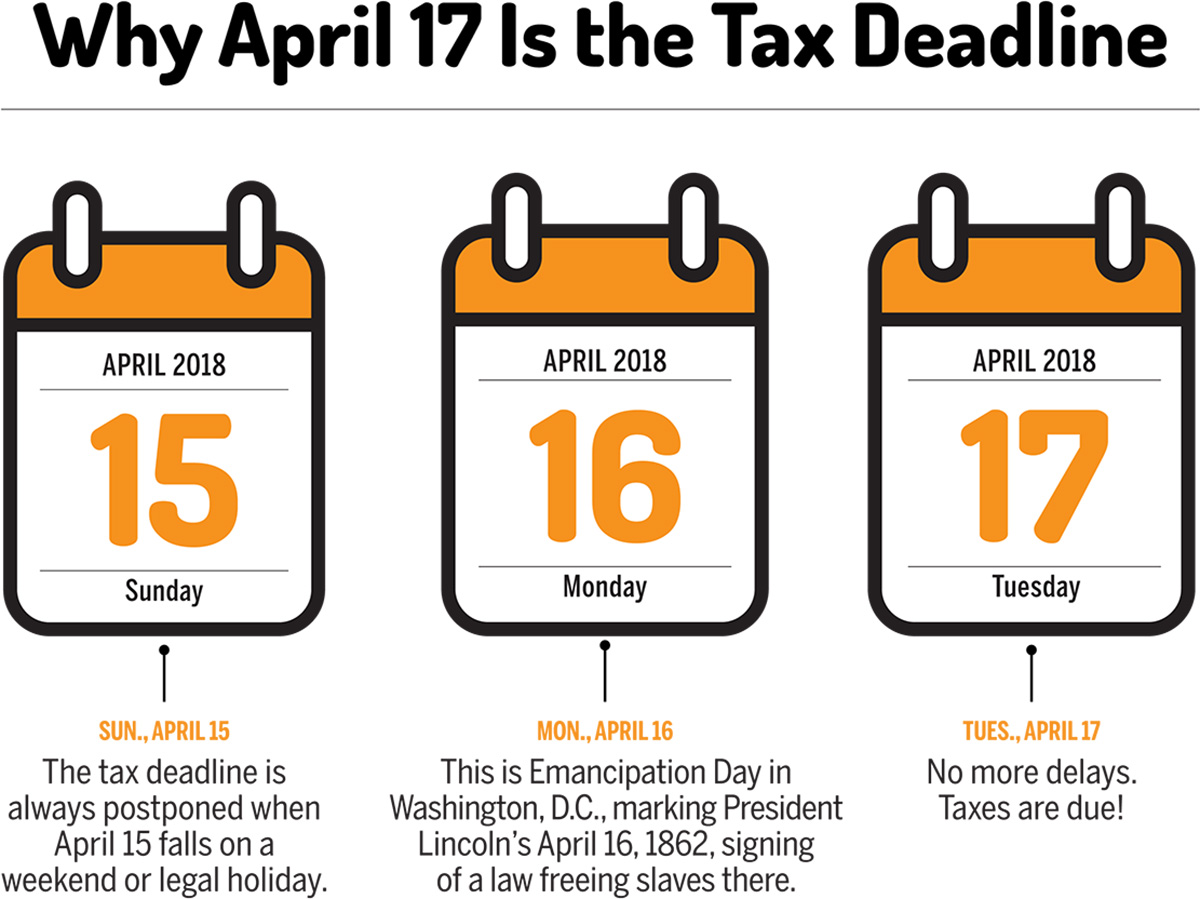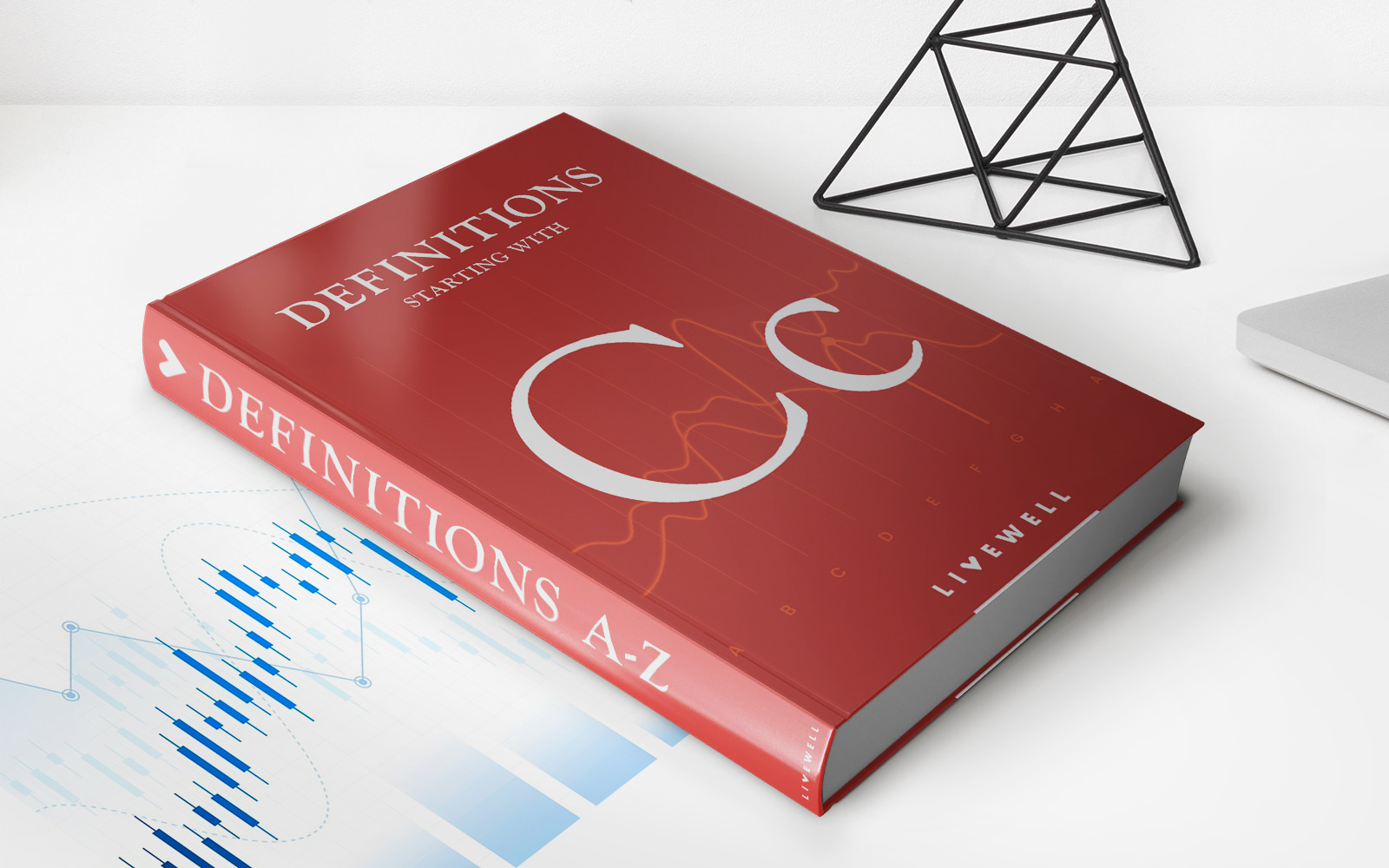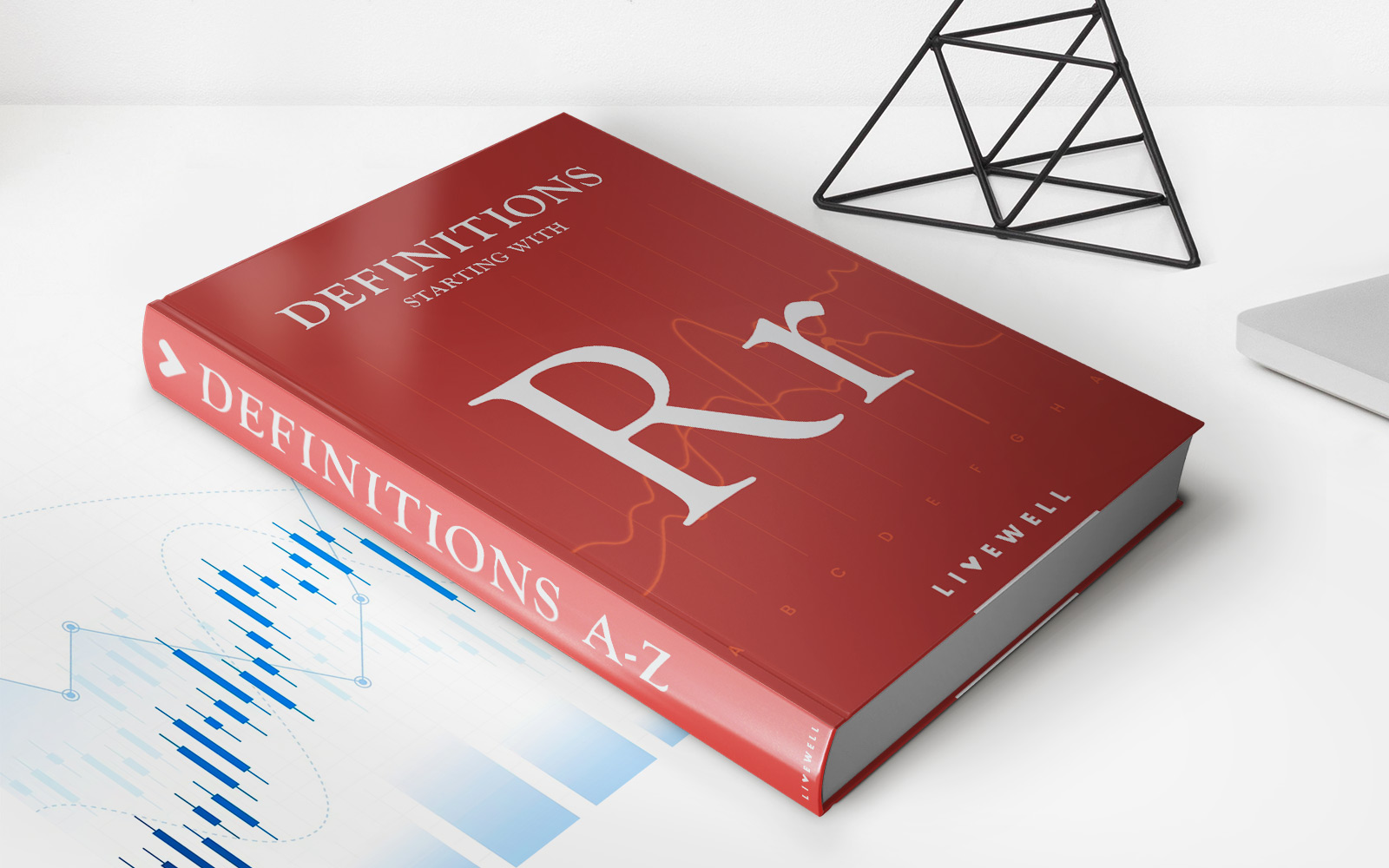Home>Finance>When Does An Estate Tax Return Need To Be Filed?


Finance
When Does An Estate Tax Return Need To Be Filed?
Modified: February 21, 2024
Learn about the estate tax return filing requirements to ensure compliance with finance laws. Find out when you need to file an estate tax return.
(Many of the links in this article redirect to a specific reviewed product. Your purchase of these products through affiliate links helps to generate commission for LiveWell, at no extra cost. Learn more)
Table of Contents
Introduction
Welcome to our comprehensive guide on when and why an estate tax return needs to be filed. Understanding the intricacies of estate tax laws can be a daunting task, but it is essential for individuals with significant assets to navigate this complex terrain. Whether you are an executor of an estate, a surviving spouse, or a beneficiary, knowing the requirements and deadlines for filing an estate tax return is crucial to ensure legal compliance and minimize potential penalties.
Before delving into the specifics, let’s first establish a clear understanding of what estate tax entails. Estate tax is a tax imposed on the transfer of assets after an individual’s death. It is levied on the decedent’s estate and is based on the value of the assets owned by the deceased individual at the time of their passing. It is important to note that estate tax is different from inheritance tax, which is imposed on the heirs who receive the assets.
Now, let’s explore the circumstances in which an estate tax return must be filed. The Internal Revenue Service (IRS) requires the filing of an estate tax return for estates that exceed a certain threshold, known as the exemption limit. This threshold is subject to change and varies depending on federal and state laws. It is crucial to stay updated with the current exemption limit to determine if your estate is subject to estate tax filing.
Keep reading to learn more about the specific requirements, deadlines, and potential penalties associated with filing an estate tax return. By understanding these details, you can ensure compliance with the law and avoid unnecessary complications during the estate settlement process.
Understanding Estate Tax
Estate tax, also known as inheritance tax or death tax, is a tax levied by the government on the transfer of assets from a deceased individual to their heirs. It is important to have a clear understanding of estate tax to navigate the complex landscape of estate planning and ensure compliance with tax laws.
The purpose of estate tax is twofold. Firstly, it helps generate revenue for the government, providing funds for various public services and programs. Secondly, it serves as a tool for wealth redistribution, aiming to reduce wealth inequality by imposing taxes on larger estates.
It is essential to note that estate tax is not levied on all estates. The government sets a threshold, known as the exemption limit, above which the estate becomes subject to the tax. This exemption limit can vary depending on the jurisdiction and may be subject to change over time due to legislative adjustments.
Once the estate’s value exceeds the exemption limit, the tax rate is applied to the portion of the estate that exceeds the threshold. The tax rate can also vary depending on the jurisdiction, with some jurisdictions enforcing a progressive tax rate, meaning higher estate values are subjected to higher tax rates.
When determining the value of an estate, both tangible and intangible assets are taken into account. This can include property, investments, bank accounts, retirement accounts, business holdings, and even valuable personal possessions such as art and jewelry. Liabilities, debts, and outstanding mortgages can be deducted from the total value of the estate to determine the net taxable amount.
It’s important to consult with a qualified tax professional or seek legal advice to accurately assess the value of the estate and ensure compliance with applicable tax laws. Proper estate planning can help minimize the tax burden on heirs and ensure that the estate is distributed according to the decedent’s wishes.
Understanding estate tax is the foundation for effective estate planning. By being knowledgeable about the tax implications and staying informed about current exemption limits and tax rates, individuals can make informed decisions to protect their assets and provide for the well-being of their loved ones.
Estate Tax Return Filing Requirements
When it comes to filing an estate tax return, it is essential to understand the specific requirements set forth by the Internal Revenue Service (IRS). Failure to comply with these requirements can result in penalties and legal complications. Let’s explore the key filing requirements for an estate tax return.
1. Threshold for Filing: The first requirement is to determine whether the estate is above the exemption limit set by the IRS. This threshold can vary depending on federal and state laws. It is important to stay updated with the current exemption limit to determine if the estate is subject to estate tax filing.
2. Form 706: If the estate is above the exemption limit, Form 706, known as the United States Estate (and Generation-Skipping Transfer) Tax Return, must be filed with the IRS. This form provides a comprehensive overview of the estate’s assets, debts, and deductions.
3. Executor’s Responsibility: The executor of the estate is responsible for filing the estate tax return. If there is no appointed executor, the person in charge of the estate administration must fulfill this obligation. It is important to designate a competent and trustworthy executor to ensure compliance with tax laws.
4. Valuation of Assets: The estate tax return requires accurate valuation of all assets owned by the deceased individual at the time of their passing. This includes real estate, investments, bank accounts, businesses, and other financial holdings. The valuation process may require the assistance of appraisers or other professionals to determine the fair market value of the assets.
5. Deductions and Credits: The estate tax return allows for various deductions and credits that can help reduce the overall tax liability. These may include deductions for mortgages, unpaid taxes, and administrative expenses. Additionally, certain credits may be available for state estate taxes paid.
6. Supporting Documentation: It is crucial to provide supporting documentation for all reported assets, liabilities, deductions, and credits in the estate tax return. This includes bank statements, property appraisals, loan documents, and any other relevant paperwork. Organizing and maintaining accurate records is essential for a smooth and efficient filing process.
7. Timely Filing: Estate tax returns must be filed within the specified timeline to avoid penalties and interest charges. The filing deadline will depend on the date of the individual’s passing and other factors, which we will discuss in the next section.
To ensure compliance with the filing requirements, it is highly recommended to consult with a qualified tax professional or seek legal advice. They can guide you through the process, help you gather the necessary documentation, and ensure accurate and timely filing of the estate tax return.
When to File an Estate Tax Return
Knowing the specific timeline for filing an estate tax return is crucial to meet the legal requirements and avoid penalties. The filing deadline for an estate tax return depends on several factors. Let’s explore the key considerations to determine when to file an estate tax return.
1. Exceeding the Exemption Limit: The first step in determining when to file an estate tax return is to assess whether the estate’s value exceeds the exemption limit. If the estate’s value is below the exemption limit, there is no obligation to file an estate tax return. However, if it surpasses the threshold, filing becomes mandatory.
2. Date of Death: The date of the decedent’s passing plays a crucial role in determining the filing deadline. Generally, estate tax returns are due nine months after the date of death. However, there are certain circumstances where an extension may be available, which we will discuss in a later section.
3. Alternate Valuation Date: In some cases, the executor of the estate may choose an alternate valuation date for certain assets. This date is typically six months after the date of death. If the valuation of assets on this alternate date results in a lower estate value and reduces the estate tax liability, the executor may elect to use this valuation date. However, if the alternate valuation date is chosen, it must be consistently applied for all assets and must be stated on the estate tax return.
4. Portability Election: For married couples, a portability election may allow the surviving spouse to utilize any unused portion of the deceased spouse’s estate tax exemption. This election must be made within a specific timeframe, which is generally nine months from the date of death. Filing an estate tax return is required to make the portability election.
It is crucial to stay informed about any changes in tax laws or filing requirements that may impact the timing of estate tax return filing. Additionally, consult with a qualified tax professional or seek legal advice to ensure accurate and timely filing of the estate tax return.
Keep in mind that filing an extension request may be necessary in certain situations where more time is needed to gather necessary information or resolve any outstanding issues. In the next section, we will discuss the process and requirements for obtaining an extension for filing an estate tax return.
Filing Deadlines for Estate Tax Returns
Filing an estate tax return within the specified deadline is crucial to avoid penalties and comply with the legal requirements. The deadline for filing an estate tax return is determined based on several factors. Let’s explore the key considerations and deadlines for filing an estate tax return.
1. General Deadline: In general, the estate tax return, Form 706, must be filed within nine months from the date of the decedent’s passing. This deadline applies to most estates and is applicable unless specific circumstances warrant an extension.
2. Alternate Valuation Date Deadline: If the executor of the estate chooses to utilize an alternate valuation date for certain assets, the estate tax return must be filed within nine months from the alternate valuation date. The alternate valuation date is typically six months after the date of death.
3. Portability Election Deadline: For married couples, the portability election, which allows the surviving spouse to utilize any unused portion of the deceased spouse’s estate tax exemption, must be made within nine months from the date of death. Filing an estate tax return is necessary to make this election.
4. Extensions: If additional time is needed to gather necessary information or resolve outstanding issues, it is possible to request an extension for filing the estate tax return. The IRS provides an automatic six-month extension, which extends the filing deadline to 15 months from the date of death. However, it is important to note that the extension applies only to the filing of the return and not to the payment of any estate tax liability.
It is essential to carefully evaluate the specific circumstances of the estate and understand the applicable deadlines for filing the estate tax return. Missing the filing deadline can result in significant penalties and interest charges.
To ensure timely and accurate filing, it is recommended to work with a qualified tax professional or seek legal advice. They can guide you through the process, help you gather the necessary documentation, and ensure compliance with the filing deadlines.
Remember, each estate is unique, and the filing deadlines may differ based on the specific situation. Staying informed about any changes in tax laws and consulting with professionals can help ensure a smooth and compliant estate tax return filing process.
Extensions for Filing an Estate Tax Return
In certain circumstances, it may be necessary to request an extension for filing an estate tax return. An extension grants additional time to gather relevant information and complete the necessary paperwork. The Internal Revenue Service (IRS) provides an automatic extension for filing the estate tax return. Let’s explore the process and requirements for obtaining an extension.
1. Automatic Extension: The IRS grants an automatic six-month extension for filing an estate tax return. This extension extends the filing deadline from nine months to 15 months from the date of the decedent’s passing. To qualify for this extension, no formal request or documentation is required. However, it is important to note that the automatic extension applies only to the filing of the return and not to the payment of any estate tax liability.
2. Filing Form 4768: If additional time beyond the automatic six-month extension is needed, it is possible to request an extension by filing Form 4768, Application for Extension of Time To File a Return and/or Pay U.S. Estate (and Generation-Skipping Transfer) Taxes. This form must be filed before the initial nine-month filing deadline. The IRS will review the request and may grant a discretionary extension based on the circumstances presented.
3. Justification for Extension: When filing Form 4768, it is essential to provide a valid and compelling reason for the extension request. Examples of acceptable justifications include delays in asset valuation, ongoing disputes or litigation, or unforeseen complications in settling the estate. The IRS considers each request on a case-by-case basis, and providing sufficient documentation and explanation of the circumstances can improve the chances of the extension being granted.
4. Payment of Estate Tax Liability: It is important to note that an extension for filing the estate tax return does not grant an extension for paying any estate tax liability. If there is an estimated tax liability, it is generally expected to be paid by the original nine-month filing deadline to avoid interest charges and penalties. Any unpaid tax amount by the original deadline may accrue interest and penalties until paid.
5. Penalties: Failure to file an estate tax return by the prescribed deadline, including any extensions granted, can result in penalties imposed by the IRS. The penalties can be substantial and are calculated based on the amount of tax owed and the time elapsed since the filing deadline. It is crucial to adhere to the filing deadlines and submit the necessary extensions when required to avoid these penalties.
Obtaining an extension for filing an estate tax return can provide much-needed time to gather information and properly settle the estate. By understanding the process and requirements for extensions, individuals can ensure compliance with tax laws and avoid unnecessary penalties.
To navigate the complexities of requesting an extension and ensure accurate filing, consulting with a qualified tax professional or seeking legal advice is highly recommended. They can guide you through the necessary steps, help you complete the required forms, and ensure compliance with all IRS regulations.
Penalties for Late Filing of Estate Tax Returns
Timely filing of an estate tax return is crucial to avoid penalties and comply with tax laws. Failure to file the return by the prescribed deadlines can result in significant penalties imposed by the Internal Revenue Service (IRS). Let’s delve into the penalties for late filing of estate tax returns and the potential consequences of non-compliance.
1. Late Filing Penalty: The most common penalty for late filing is the late filing penalty. This penalty is calculated based on the amount of tax owed and the time elapsed since the original filing deadline. Currently, the penalty is generally 5% of the unpaid tax amount for each month (or part of a month) that the return is late, up to a maximum of 25% of the unpaid tax.
2. Minimum Penalty: If the estate tax return is more than 60 days late, there is a minimum penalty that may be imposed. The minimum penalty is the lesser of $435 or 100% of the tax due on the return. This penalty can apply even if no tax is owed or if a refund is due.
3. Interest Charges: In addition to penalties, the IRS also imposes interest charges on any unpaid tax amount from the original filing deadline until the tax is paid in full. The interest rate is determined quarterly and is typically based on the federal short-term interest rate plus 3%.
4. Reasonable Cause Exception: In certain circumstances, the IRS may waive or reduce the late filing penalty if the taxpayer can demonstrate reasonable cause for the delay in filing. Examples of reasonable cause may include serious illness, natural disasters, or other extenuating circumstances beyond the taxpayer’s control. It is important to provide supporting documentation and a clear explanation of the circumstances when requesting a penalty abatement based on reasonable cause.
5. Criminal Penalties: In extreme cases of intentional tax evasion or fraudulent activities, the IRS may pursue criminal charges against individuals who willfully fail to file an estate tax return. Criminal penalties can include fines and imprisonment, depending on the severity of the offense. These penalties are imposed to deter intentional tax evasion and uphold the integrity of the tax system.
To avoid these penalties, it is essential to adhere to the prescribed filing deadlines and ensure accurate and timely filing of the estate tax return. Seeking professional guidance from a qualified tax professional or attorney can help navigate the complex tax laws and ensure compliance with all filing requirements.
In summary, the penalties for late filing of estate tax returns can be severe and result in financial consequences. Therefore, it is crucial to understand and meet the filing deadlines, maintain accurate records, and promptly seek professional assistance when needed to avoid penalties and comply with tax regulations.
Conclusion
Filing an estate tax return is a crucial step in the estate settlement process for individuals with significant assets. It is essential to understand the requirements, deadlines, and potential penalties associated with estate tax return filing to ensure compliance with tax laws and protect the interests of the estate and its beneficiaries.
In this comprehensive guide, we’ve explored the basics of estate tax, the filing requirements, and the importance of timely filing. It is vital to determine whether the estate exceeds the exemption limit and whether an estate tax return is necessary. When filing the estate tax return, accurate valuation of assets, deductions, and supporting documentation are essential.
Understanding the specific deadlines for filing an estate tax return is crucial. Compliance with the filing timeline can help avoid penalties and interest charges. The IRS provides an automatic six-month extension option for filing, but it is important to note that this extension applies only to the filing of the return and not to the payment of any tax liability.
Failure to file an estate tax return on time can result in penalties and interest charges. The late filing penalty is calculated based on the unpaid tax amount and the time elapsed since the original filing deadline. However, there may be exceptions for reasonable cause.
To navigate the intricacies of estate tax return filing and ensure compliance, it is highly recommended to seek professional guidance from experienced tax professionals or attorneys specializing in estate planning. They can provide valuable insights, help with accurate valuation, guide through the filing process, and assist in minimizing the tax liability.
By understanding the requirements, deadlines, and potential penalties associated with estate tax return filing, individuals can ensure compliance, protect the interests of the estate, and alleviate the burden on heirs. Proper estate planning and compliance with tax laws contribute to a smooth and efficient estate settlement process, allowing for the seamless transfer of assets to the intended beneficiaries.
Remember, estate tax laws and regulations may change over time, so it’s important to stay informed and consult with professionals for the most up-to-date guidance. Investing time and effort into understanding and complying with estate tax requirements can lead to significant long-term benefits and peace of mind for you and your loved ones.














